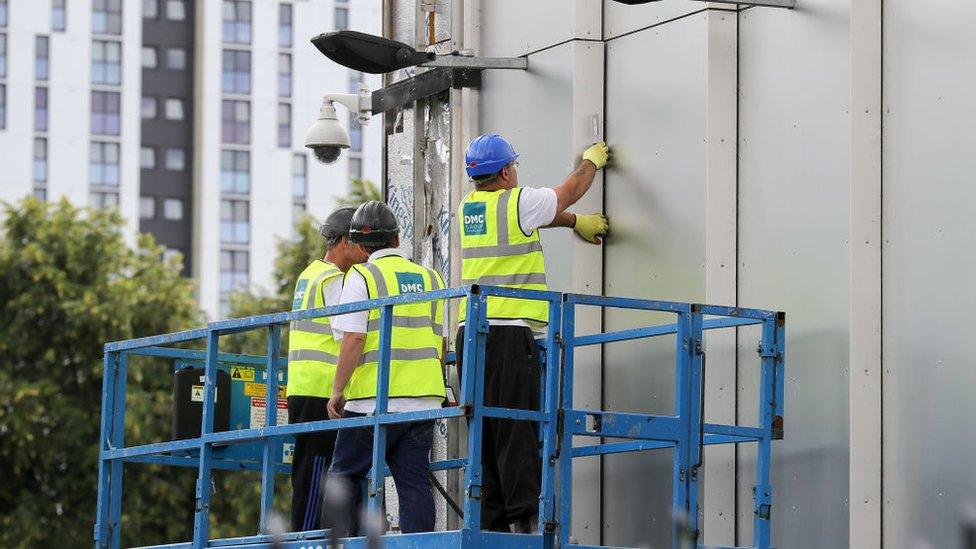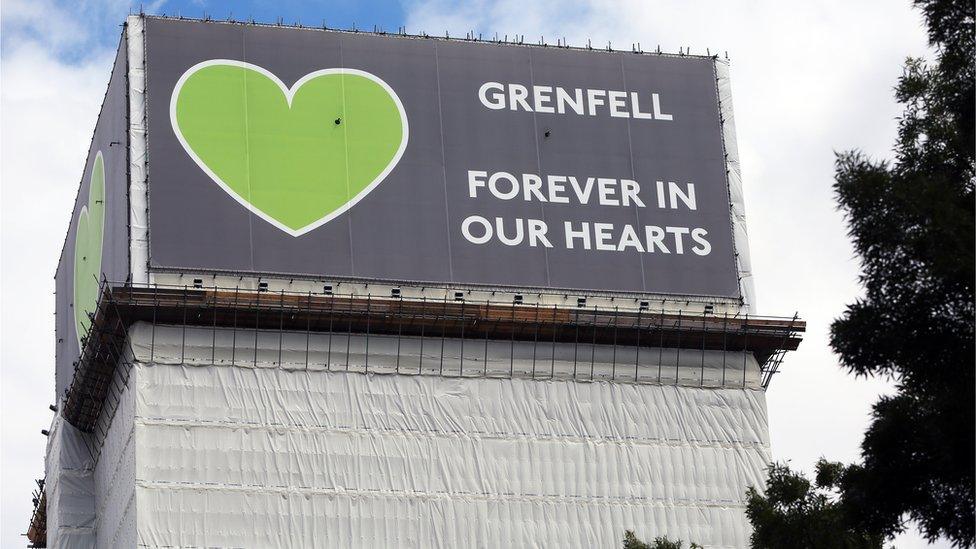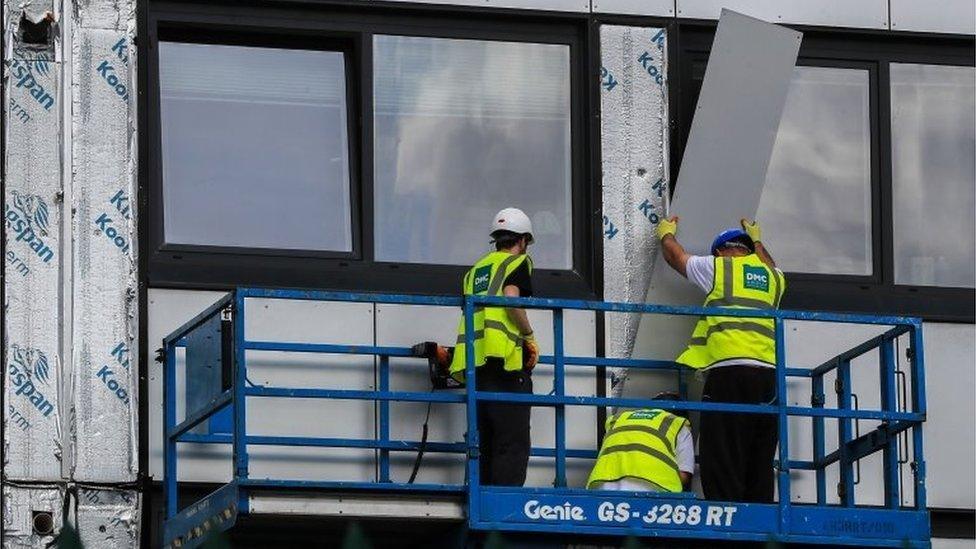MPs reject move to shield residents from fire safety costs
- Published

MPs have rejected a move to give more protections to leaseholders and tenants in England from footing the bill for fire safety work on buildings.
They opposed an attempt by peers to force the government to stump up the cash and recover it from developers.
Ministers said the proposal was unworkable and would lead to further delays in making buildings safe.
Labour said the government had broken its promises and "it is blameless people who will pay the price".
The Fire Safety Bill was brought forward to strengthen regulations following the Grenfell Tower fire in 2017 which killed 72 people.
Inspections on other flats after the tragedy found many were covered in combustible cladding.
Thousands of leaseholders have since faced large bills for safety improvements, such as changes to emergency exits.
There has been an intense debate about who should pay for new fire prevention measures - with 30 Conservative backbenchers supporting a failed move in February to shield leaseholders from the costs.
On Monday night, MPs voted by a majority of 69 to remove a Lords amendment that would have made developers, construction firms and manufacturers responsible, with the government paying the costs upfront and then recouping them.
The housing minister, Chris Pincher, told the House the government could not support the proposal, because it was "unworkable and impractical".
"They will make legislation less clear, they do not reflect the complexity involved in apportioning liability for remedial defects," he said.
'Morally unacceptable'
In February, the government announced it was putting £3.5bn towards removing unsafe cladding from buildings more than 18m high - on top of £1.6bn for cladding removal announced last year.
It said flat owners in lower-rise blocks would be able to access loans to cover repair work and repayments would be capped at £50 a month.
But flat owners say they still face costs of up to £50,000 for other works and insurance premiums.
Speaking before the vote, Conservative MP Royston Smith said leaseholders were facing bills of thousands of pounds for something that was not their fault.
He told the Commons: "In my hand this evening I have an invoice, it's an invoice for service charges and remediation of fire safety defects, it is an invoice for nearly £79,000.
"Imagine for one moment you're trapped in a flat you've been told is unsafe.
"Night after night you go to bed with the fear of fire. You can't sell your flat because it's worthless.
"If this bill becomes law, we will be abandoning hundreds of thousands of innocent people and I'm not going to have that on my conscience."
'Heavy toll'
Another Conservative MP, Stephen McPartland, said it was "morally unacceptable" not to shield leaseholders from the cost and stress of problems that were not their fault.
"Interim costs at the moment are bankrupting leaseholders up and down the country," he said, adding: "Leaseholders are screaming for help, they are screaming in pain and what are we doing?
"Today we are saying to them thanks for paying the interim costs, once you've finished that we're now going to load you up with remediation costs on top.
"Tens of thousands of pounds that people just don't have the funds for."
The shadow home office minister, Sarah Jones, said the plight of people living in shared ownership accommodation was "dire".
Thousands were facing bankruptcy she warned with a "heavy toll on mental health".
Speaking after the vote she said: "This was another chance for the government to allow people up and down the country to sleep at night knowing they would be protected in law from fire safety costs they did not cause.
"Instead, the government has once again broken its promise to protect leaseholders, and it is blameless people who will pay the price."
A government spokesperson said: "Our approach to fire safety is based on longstanding independent expert advice and evidence - which shows higher buildings have a higher risk and this is recognised globally.
"We've rightly focussed on buildings over 18m with unsafe cladding and we're spending billions of pounds to make people's homes safer.
"We support the intention to protect leaseholders from remediation costs but disagree that the Fire Safety Bill is the right vehicle to address this issue."
Related topics
- Published22 February 2021

- Published11 February 2021

- Published13 June 2022
